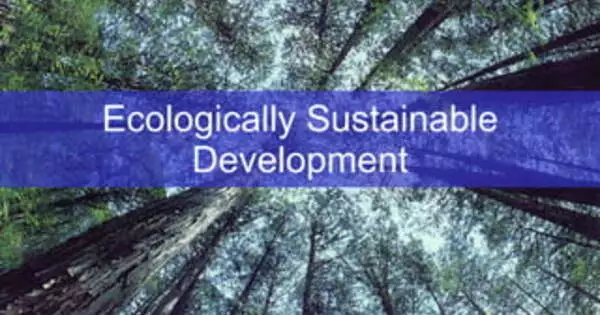Ecologically sustainable development (ESD) refers to a development approach that seeks to balance economic, social, and environmental factors in order to meet the needs of present generations without compromising the ability of future generations to meet their own needs. This involves using natural resources in a responsible and sustainable manner, minimizing waste and pollution, and promoting the conservation of biodiversity. ESD aims to promote long-term, integrated, and mutually reinforcing social, economic, and environmental objectives.
The environmental component of sustainable development is ecologically sustainable development. It can be achieved in part by employing the precautionary principle; if there are threats of serious or irreversible environmental damage, a lack of complete scientific certainty should not be used as an excuse to postpone preventive measures.
The principle of intergenerational equity is also important; the current generation should ensure that the health, diversity, and productivity of the environment are maintained or improved for the benefit of future generations. Environmental factors should be more heavily weighted in the valuation of assets and services to provide more incentive for the conservation of biological diversity and ecological integrity.
It seeks to meet the needs of the present generation without compromising the ability of future generations to meet their own needs. ESD considers the interconnections between these different aspects of sustainability and strives to promote a harmonious relationship between human activity and the natural environment. This approach can be achieved through the implementation of policies, strategies, and practices that reduce the negative impacts of human activities on the environment and promote long-term sustainability.
Political considerations
Effective political support is required for environmentally sustainable development. Government mobilization can result in action plans that are critical to long-term development. Patterns of family arrangements, work attitudes, social morality—particularly interpersonal responsibilities, hierarchy of authority, quality of scientific education and implementation, and degree of domestic stability—particularly freedom from social conflict—can all have an impact on development efforts.
To enable ecological sustainability, national policy and development planning must meet three conditions: action-oriented values to which individuals are committed, political authorities that prioritize long-term ecological benefits over immediate economic gains, and a policy with a politically competent constituency.
By using Environmental Sustainability Indicators as a guiding tool for policy development, Canada has taken an evidence-based approach to sustainable development. Many cities use evidence-based indicators and Ecological Indexes as policy development tools at the municipal level.
The ultimate aim is to create a sustainable future for all by balancing economic growth with environmental protection. It prioritizes conservation of natural resources and ecosystems, minimizes harm to the environment, and fosters intergenerational equity.
















